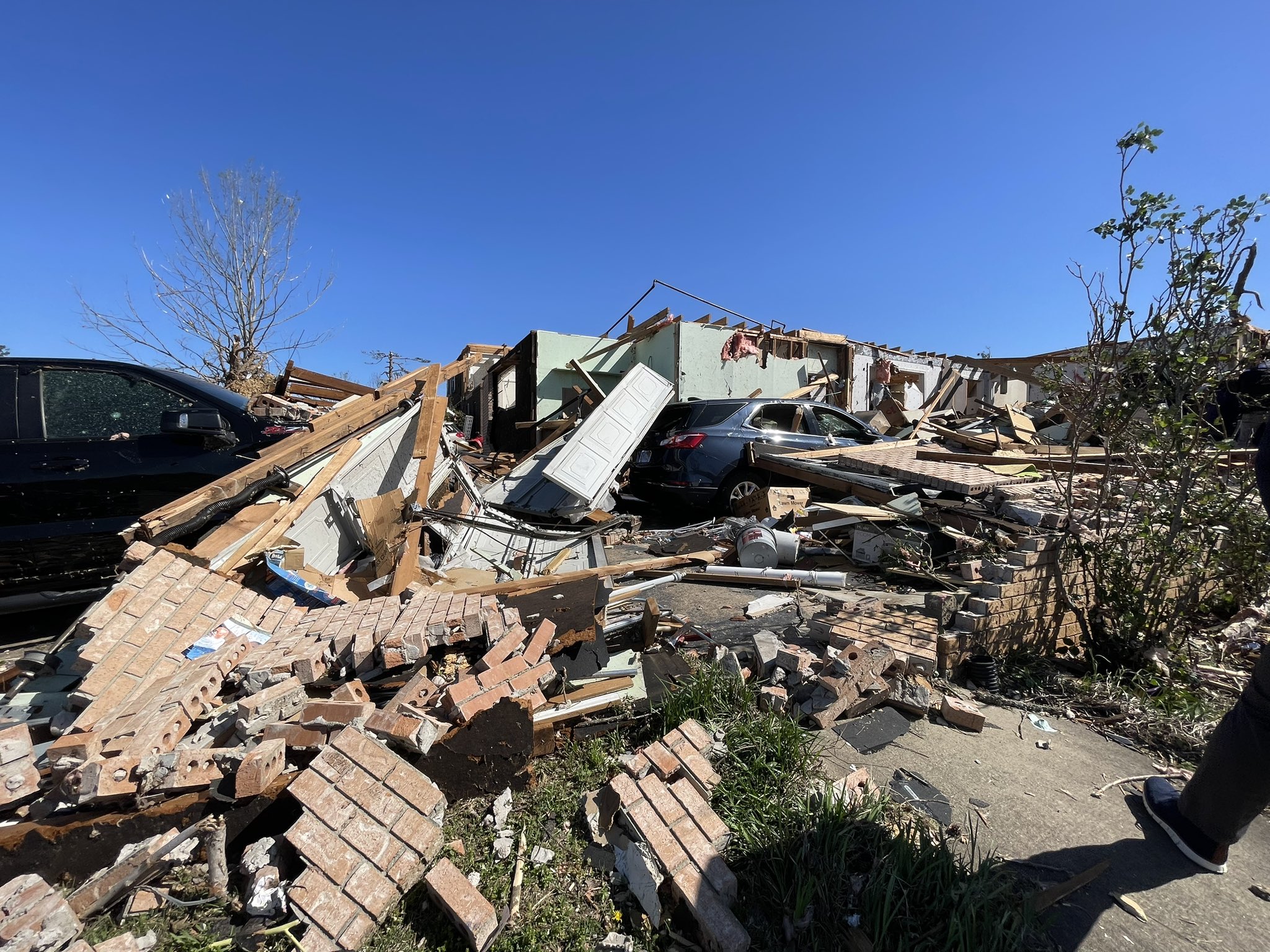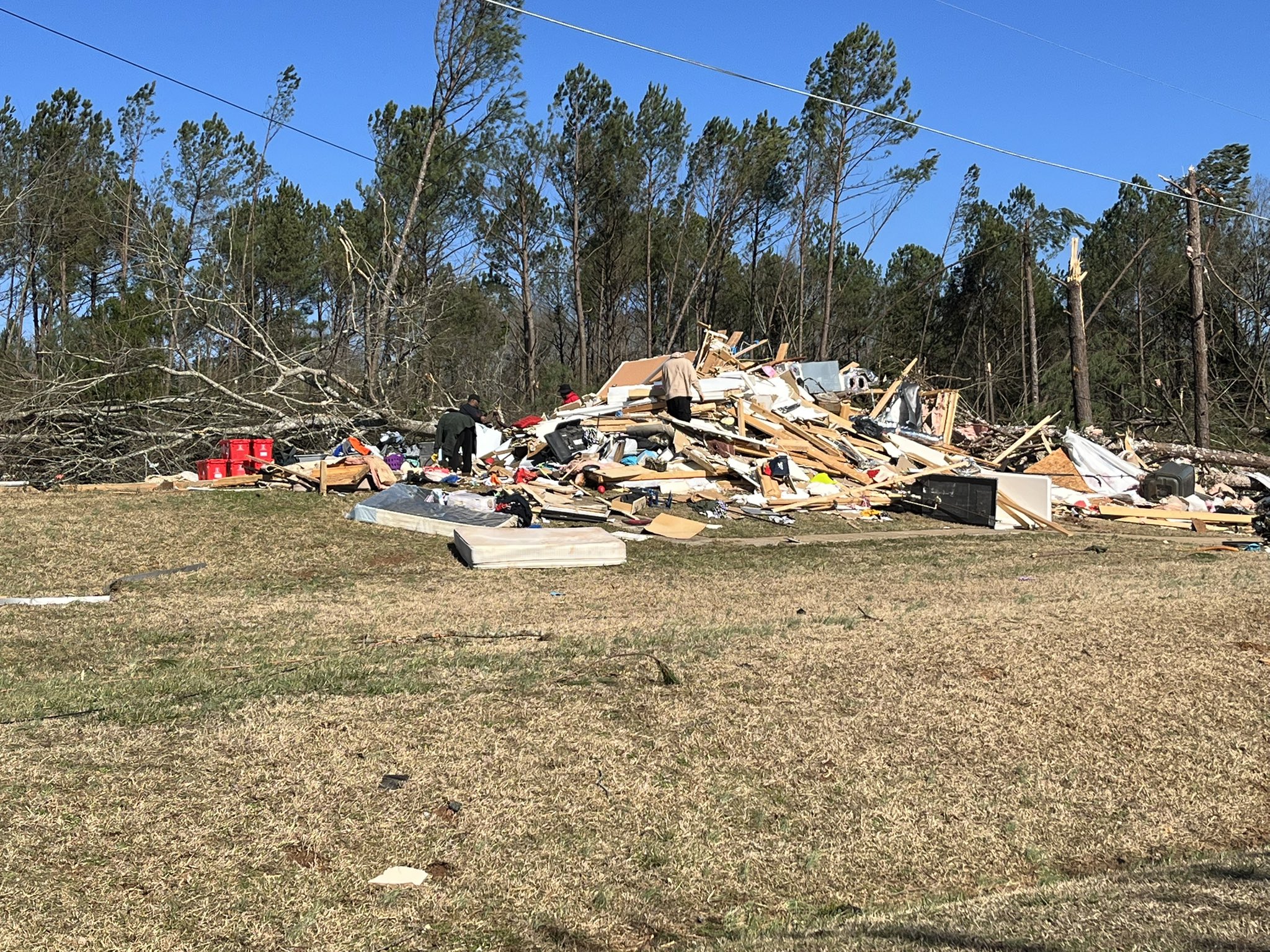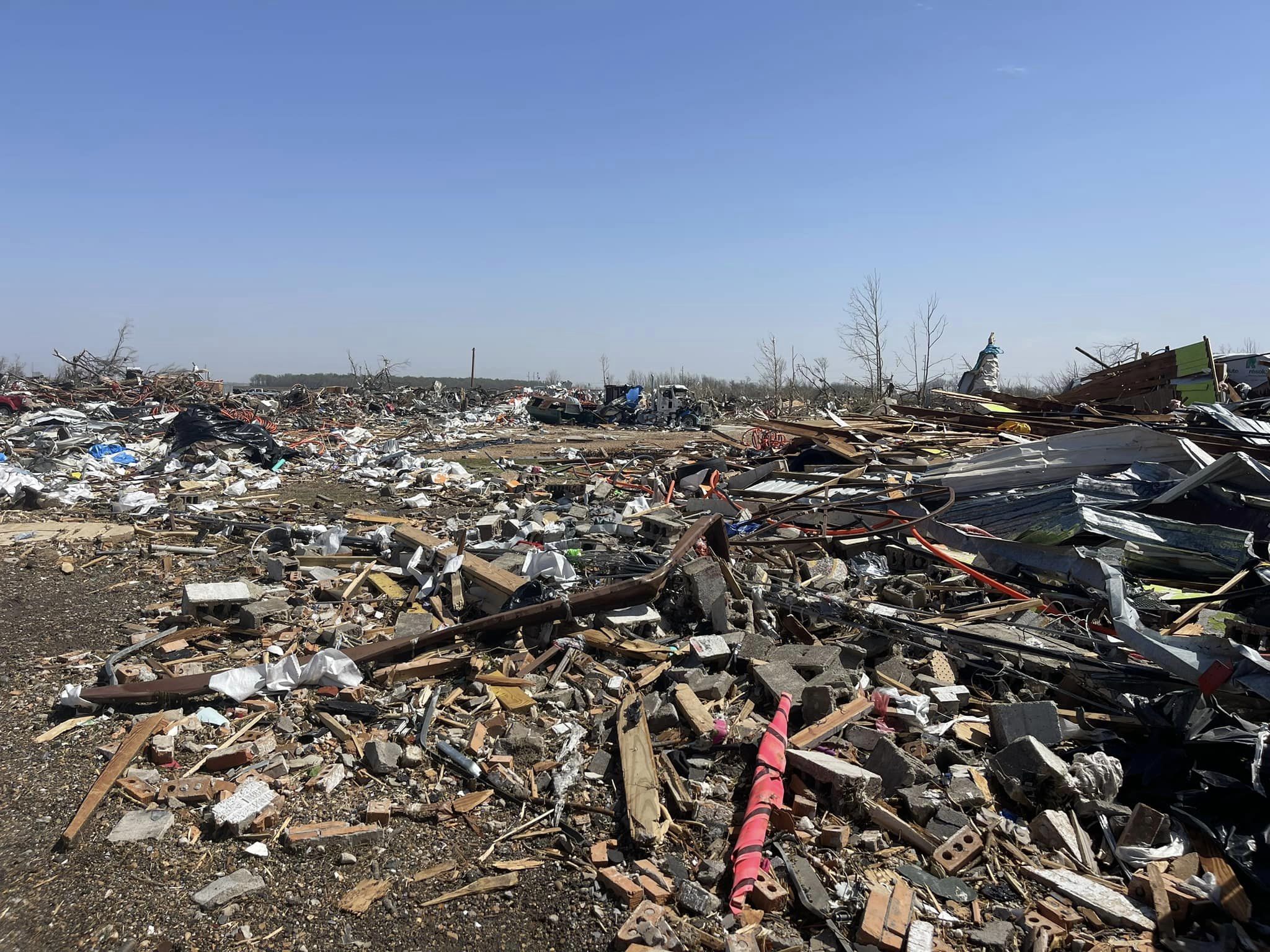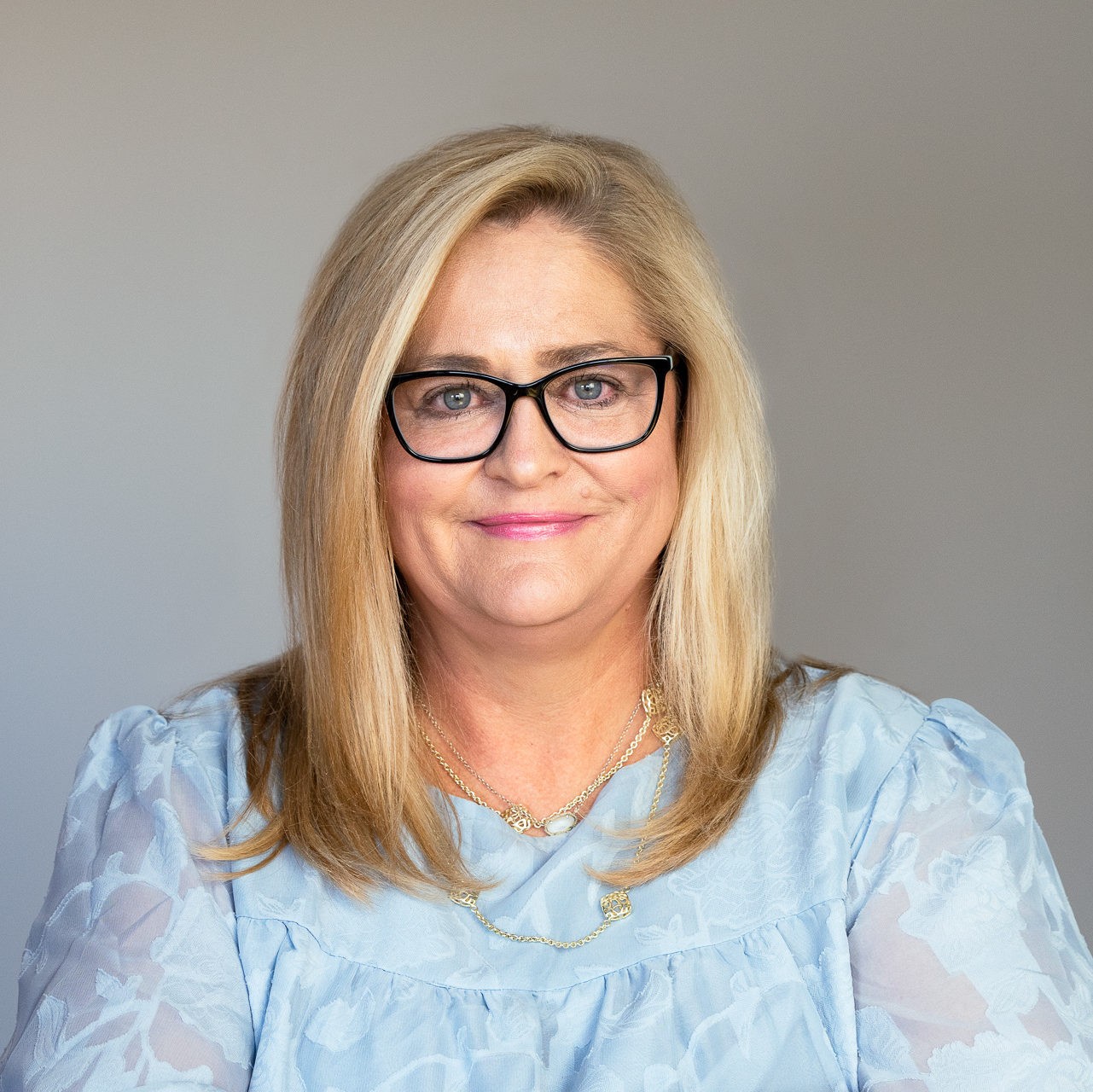Largest tornado outbreak of the year hits Midwest and South

This is my third blog post about tornadoes since January. At the Center for Disaster Philanthropy, we considered not responding at such a high level for the most recent round of storms, allowing our staff team to take a break and enjoy weekend plans. However, with at least 21 people killed by storms that marched across multiple states in the largest tornado outbreak of the year, we knew we needed to answer the call.
These communities – these PEOPLE – need us to make sure their voices are heard. We must help them recover from an unrelenting barrage of tornadoes across the Midwest and South this year. We must keep the issues they’re facing – destroyed homes, loss of transportation, economic devastation and the trauma experienced en masse as climate-related catastrophes become more common and deadly – top of mind so those of us in philanthropy can provide them some relief.
Why so many tornadoes?
Intense, almost spinning winds in the jet stream meeting warm temperatures and a swath of Gulf moisture resulted in unstable conditions from Wisconsin to Mississippi on Friday into early Saturday the weekend of March 31. Dozens of tornadoes broke out across multiple states. Even where supercell storms and rain weren’t present, gusty winds caused damage and fanned fast-moving grass fires in places like Oklahoma.
And it’s only the beginning of April. More tornadic storms could again affect the same states on Tuesday, April 4, ravaging the Midwest.
Philanthropy’s role
I know we’re all tired, and everything seems so overwhelming. This year has been a revolving door of disaster and crisis. From earthquakes in Turkey and Syria to flooding and blizzards in California to the continuing conflict in Ukraine to famine in the Horn of Africa and the seemingly constant parade of tornadic storms across the South, Midwest and even other areas of the United States, it seems as though we are in a perpetual disaster mode. Honestly, we are. But we’ve seen this before. And we know it’s vital that we stay engaged and focused.
During the 2017 Atlantic Hurricane Season, for example, philanthropy rallied to help Texas as Hurricane Harvey hit. Not long after that, Florida experienced Hurricane Irma; then Hurricane Maria slammed Puerto Rico. Each subsequent storm saw a dramatic drop-off in giving from corporations, foundations and individuals as disaster fatigue set in.
Philanthropy must keep its eyes on the marginalized communities affected by these tornadoes and other catastrophic events. We must support more than just the immediate relief needs but keep the focus on long-term recovery and increasing the resilient capacity of the places that are most at risk. We have to keep our eyes on all phases of a disaster so that we are better prepared for what’s next.
Resources
At CDP, we have many resources to assist you as you consider how to help:
- We regularly update our 2023 U.S. Tornadoes disaster profile with all the latest information.
- Our Tornadoes issue insight offers detailed information about tornadoes and anticipated needs for affected communities.
- We’ve held two emergency webinars on tornadoes this year. While geography may differ in this most recent round of twisters, the messages and advice from Mississippi and Alabama/Georgia remain the same: support local organizations, recognize the impact of historical marginalization and invest for the long term, not just now.
- Support the CDP Tornado Recovery Fund to provide resources to under-resourced and historically marginalized communities affected by these tornadoes. Our grantmaking typically focuses on mid-to-long-term recovery, where we know the most significant needs will be with the fewest resources.
- Learn more about our Midwest Early Recovery Fund, directed by my colleague, Cari Cullen. Several of the states affected by tornadoes this year are in the coverage area of this fund.
- Contact me, or other members of the CDP team. We’re always available to answer any questions you might have.
It’s been a busy year. But at CDP, we’re still committed to strengthening the ability of communities to withstand disasters and recover equitably when they occur. With your help, we can envision a world where the impact of disasters is minimized by thoughtful, equitable and responsible recovery for all. It’s what we do. We’re grateful, as always, to have your support.
More like this

Deadly winter tornadoes prompt new CDP Tornado Recovery Fund

